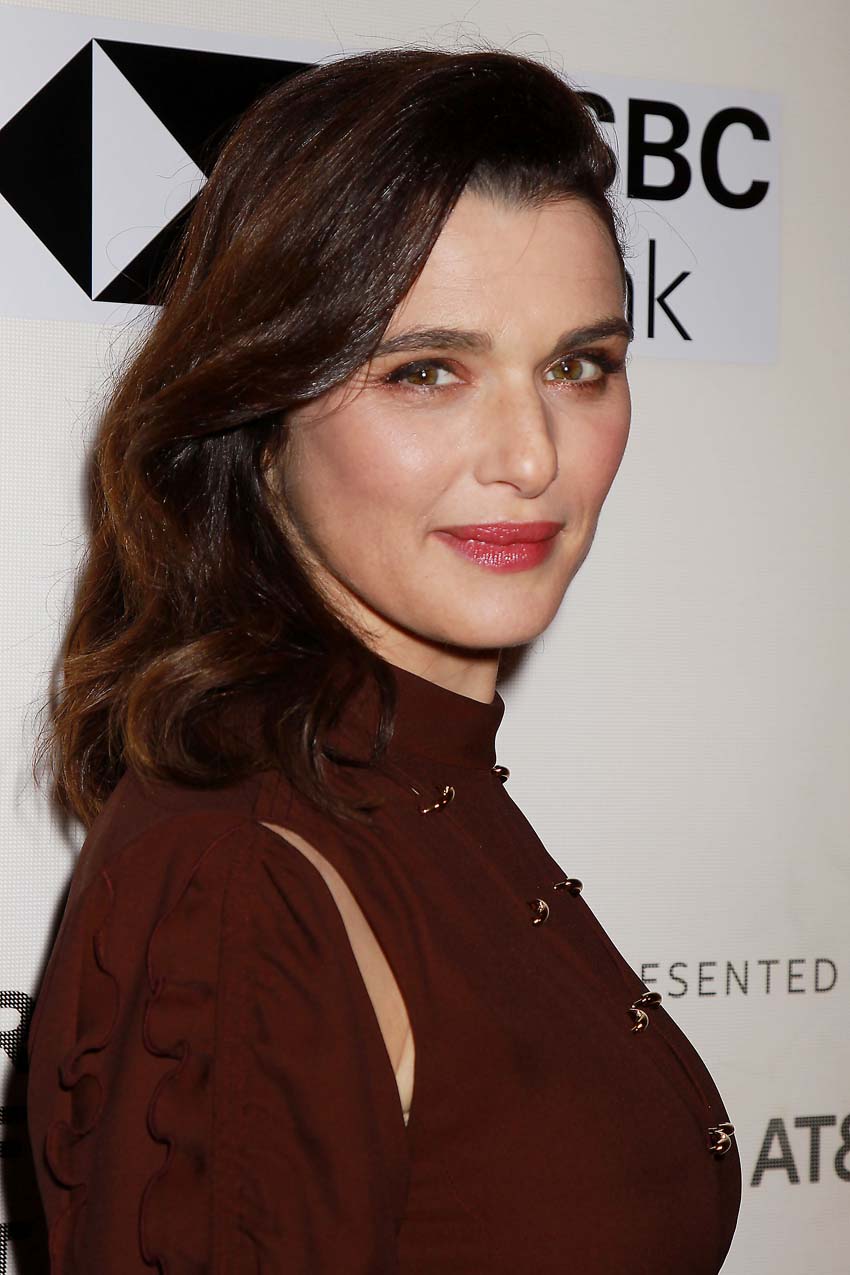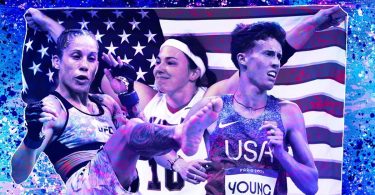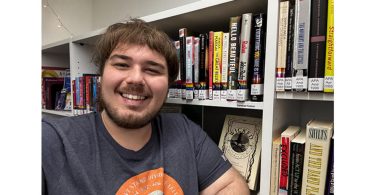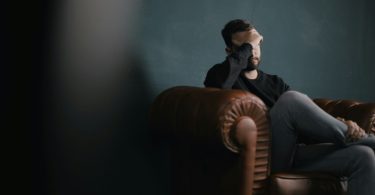She’s the iconic British actress known for performances in films such as The Lobster, Enemy At the Gates and, of course, her Oscar-winning turn in The Constant Gardner. (Did we mention the first two criminally underrated Mummy films?)
Now, Rachel Weisz is generating awards buzz once again for her role as Ronit in Disobedience, a beautiful drama exploring the profound connection between Ronit and Esti, two women from London’s Orthodox Jewish community.
The movie is directed by Sebastian Lelio, whose last effort – the trailblazing A Fantastic Woman, about a trans woman in Santiago – won the 2018 Best Foreign Language Film Oscar.
‘I optioned the book about three and a half years ago’
‘I had no reservations about the role,’ Rachel tells us on the eve of Disobedience’s US cinema release. ‘The opposite. I was keen. I optioned the book about three and a half years ago.’
‘It was 1000% the story I wanted to tell,’ adds the wife of James Bond actor Daniel Craig, who last week announced she was pregnant with her second child. ‘But as an actor you always have doubts about whether anything’s going to work. But in terms of the desire to tell this particular story, I was unquestionably passionate.’
Rachel at the Tribeca Film Festival this week | Photo: Bleecker Street
Here, Rachel chats with GSN about all things Disobedience, from gay men’s response to the film to the powerful central sex scene, also featuring Mean Girls’ Rachel McAdams…
How did you prepare for the role? Did you speak to any lesbian or LGBTI women?
No. I wouldn’t have known what questions really to ask them. It was about loving this woman. It wasn’t anything to me beyond that. I knew this woman was a person I loved. There was no research. I know what love feels like.
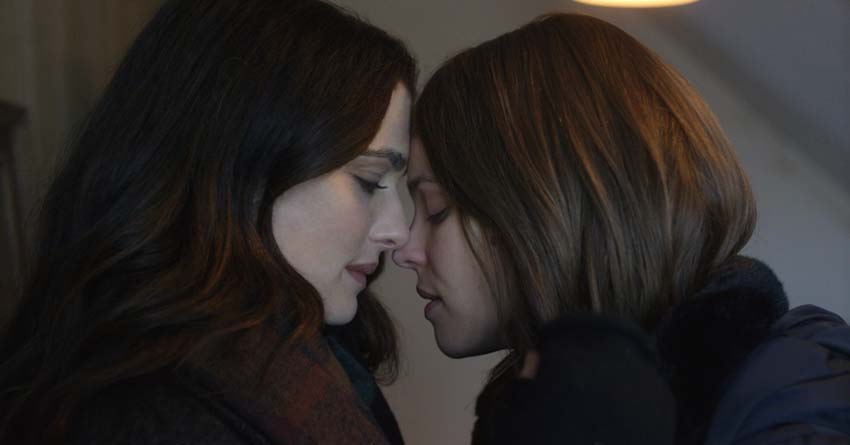
Rachel and costar Rachel McAdams
What kind of feedback are you getting from lesbian and LGBTI women about the film?
So far, the lesbian women I’ve spoken to have been really moved. I can’t please everyone. But the people I’ve spoken to [feel] they’re being represented and that the story has tenderness.
A lot of them said it’s not like ‘Lesbian 101’ sex scenes. It’s tender, beautiful and non-objectifying, which is what they normally experience in how their sexuality is represented. It’s the subject of the whole film, the love between these two women.
Gay men I’ve spoken to as well have said they identify with Ronit because – well, one said to me: ‘My greatest fear was I was going to be rejected by my father for my sexuality. And I was, and it was terribly painful.’ So yeah, I’ve had very warm reactions from men and women so far.
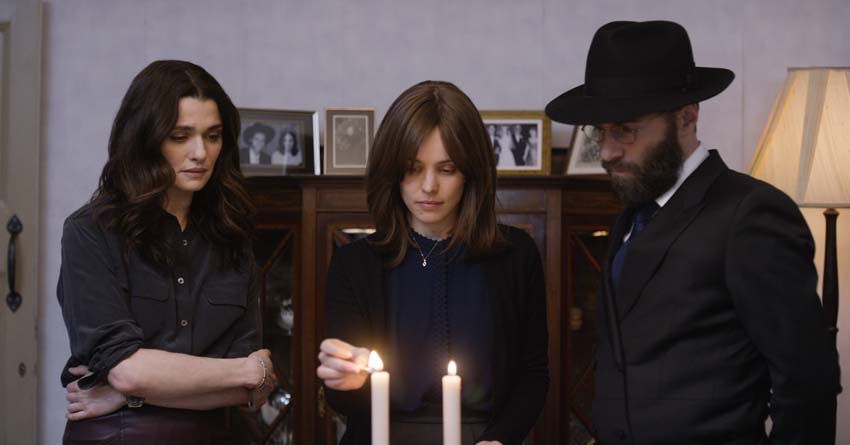
I loved the sex scene. I drew parallels with the sex scene in Blue Is the Warmest Colour, which was equally powerful, but the conclusions I drew from it were different. Were you aware of the conversation around Blue’s sex scene, and did that educate you, Sebastian and Rachel McAdams in how you prepared for yours?
You know what, Sebastian is the author of all the gestures, the framing and the content of the sex scene. Rachel and I are responsible for the emotion that we put into it. So you’d have to ask him if he was thinking about Blue Is the Warmest Colour or not. I never had that conversation with him.
I know he wasn’t interested in nudity. He was interested in emotion and the performance on the [faces] of the women. It’s not really just a sex scene. It’s one of the most meaningful scenes in the film, about Esti’s emancipation, freedom and liberation to who she really is; a rekindling of first love. It was very, very emotional. It was not meaningless.
What did you think of Sebastian’s previous film A Fantastic Woman?
I thought it was extraordinary, as was Gloria, his film before that, was what made me want to work with him. He puts a 58-year-old woman’s sex life – in that case a straight woman – front and center of the story.
Those characters are usually on the margins, the stories of the granny or the auntie with a couple of lines. Certainly not sex lives at that age. In A Fantastic Woman, he put the experience of being a trans woman front and center. She’s not just a type or a troupe. It’s her story.
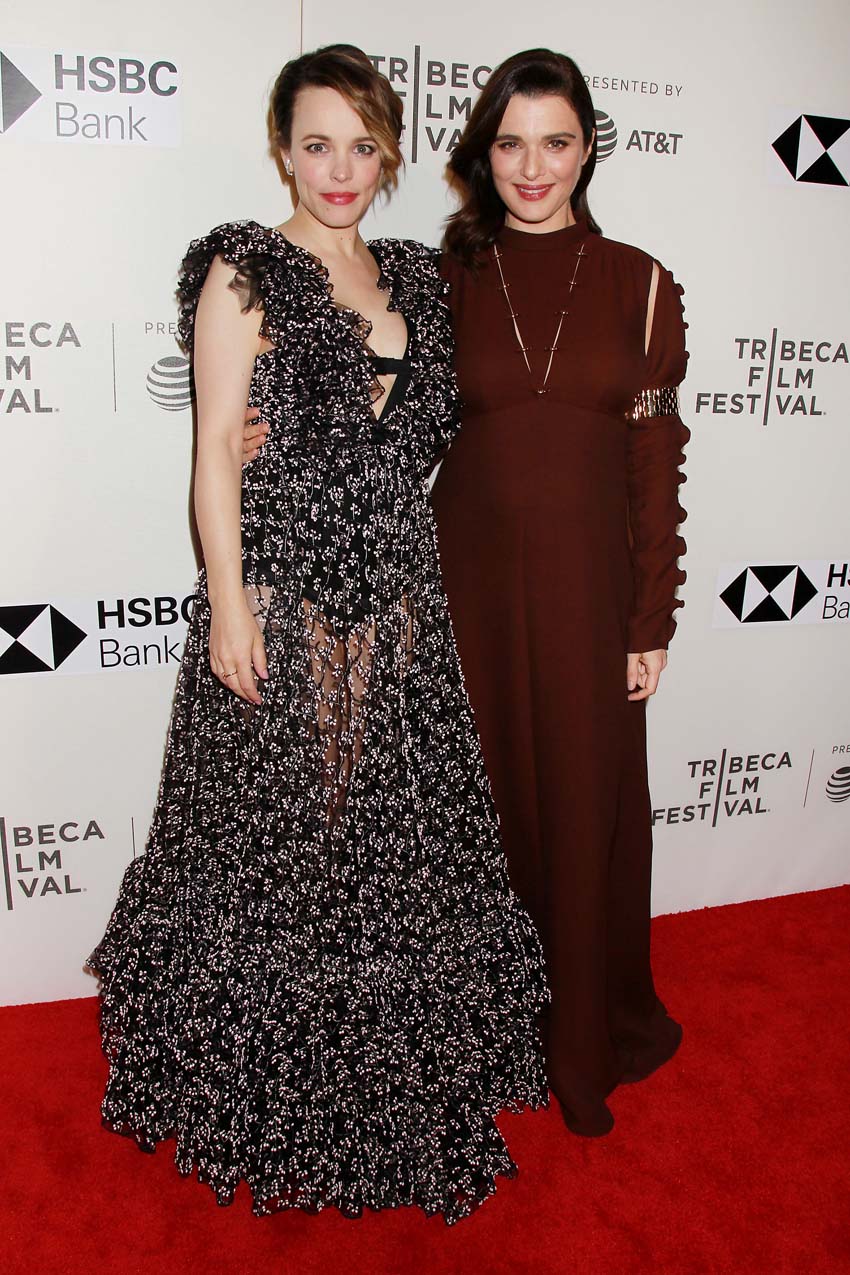
Rachel and Rachel | Photo by Dave Allocca/Starpix
I’m not a trans woman, but watching the film, I felt what it felt like to be her. To me, the point of storytelling is what it’s like to be people that we’re not. Particularly people on the margins of storytelling, so two queer Orthodox Jewish women… That’s not normally front and center. But for them, their lives are front and center. Sebastian has an extraordinary way of telling a story – he does the opposite of objectifying women or people – he subjectifies them, which is an amazing thing.
I wanted to delicately touch on the debate around LGBTI roles [only] going to LGBTI people. Personally I don’t believe in that, but some of the people in my community do. What’s your response to that conversation?
I wanted to tell this story and represent it; I see my task as not to tell the story I’ve lived. When I played Blanche Dubois on the stage, I’m not an alcoholic. And I’m not interested in sleeping with teenage boys! But that’s the character. So I see storytelling as me becoming people that I’m not.
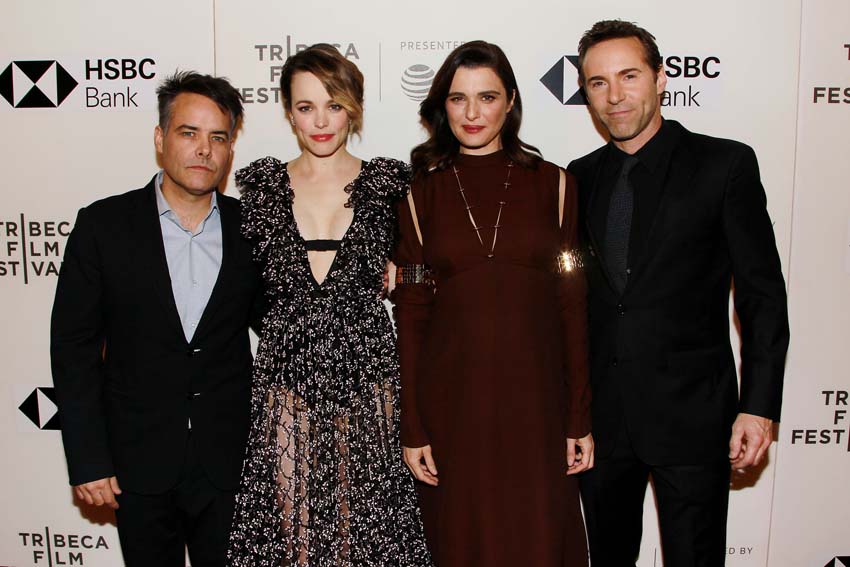
Sebastian Lelio, Rachel McAdams, Rachel Weisz and Alessandro Nivola | Photo by Bleecker Street
Sebastian isn’t a gay woman. He has a trans woman play a trans woman in A Fantastic Woman, but he said he’s allowed to be disobedient and cast who he wants I guess. I don’t know what to say beyond that. It’s about becoming and representing someone else. I’m not anyone that I play, otherwise I’d just be in a documentary.
Do you have a favorite LGBTI-themed movie of your own?
One of my favorite films is by Claudia Weill from 1978 called Girlfriends. It’s really more about female friendship, and then there is one gay woman in it, a girl who moves in with the lead character. But it’s about two women. I wouldn’t say it’s a really queer… I mean there are hardly any movies that I’ve seen that are. I’ve seen Blue is The Warmest Colour and Carol and that’s about it. I need to be educated! But there aren’t many. It’s not a done to death story.
It’s not like there’s a wealth of films about gay male love either, but there’s certainly are more than compared to films about LGBT women.
Much more.
Do you hope the success Disobedience will lead to more films with such stories?
Definitely, I would hope so. I’ve been in lots of films about heterosexual love, so great, wonderful, bring it on. It’s very underrepresented, so yeah I hope so.
[embedded content]
Disobedience is out in US cinemas now

